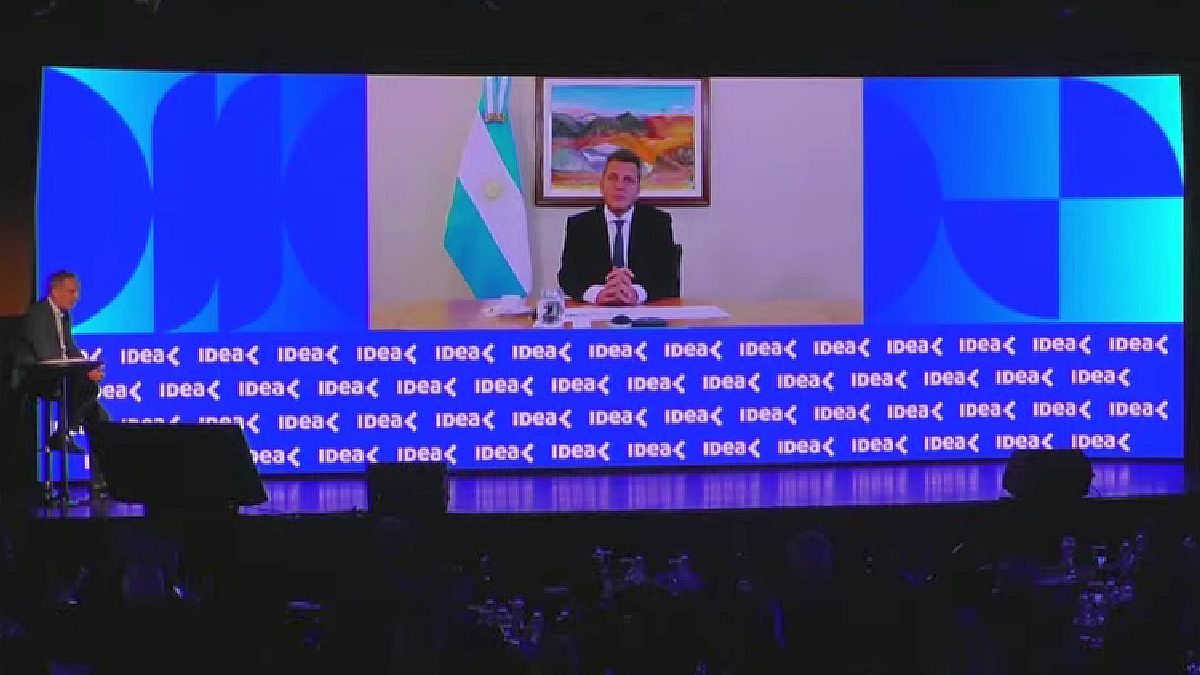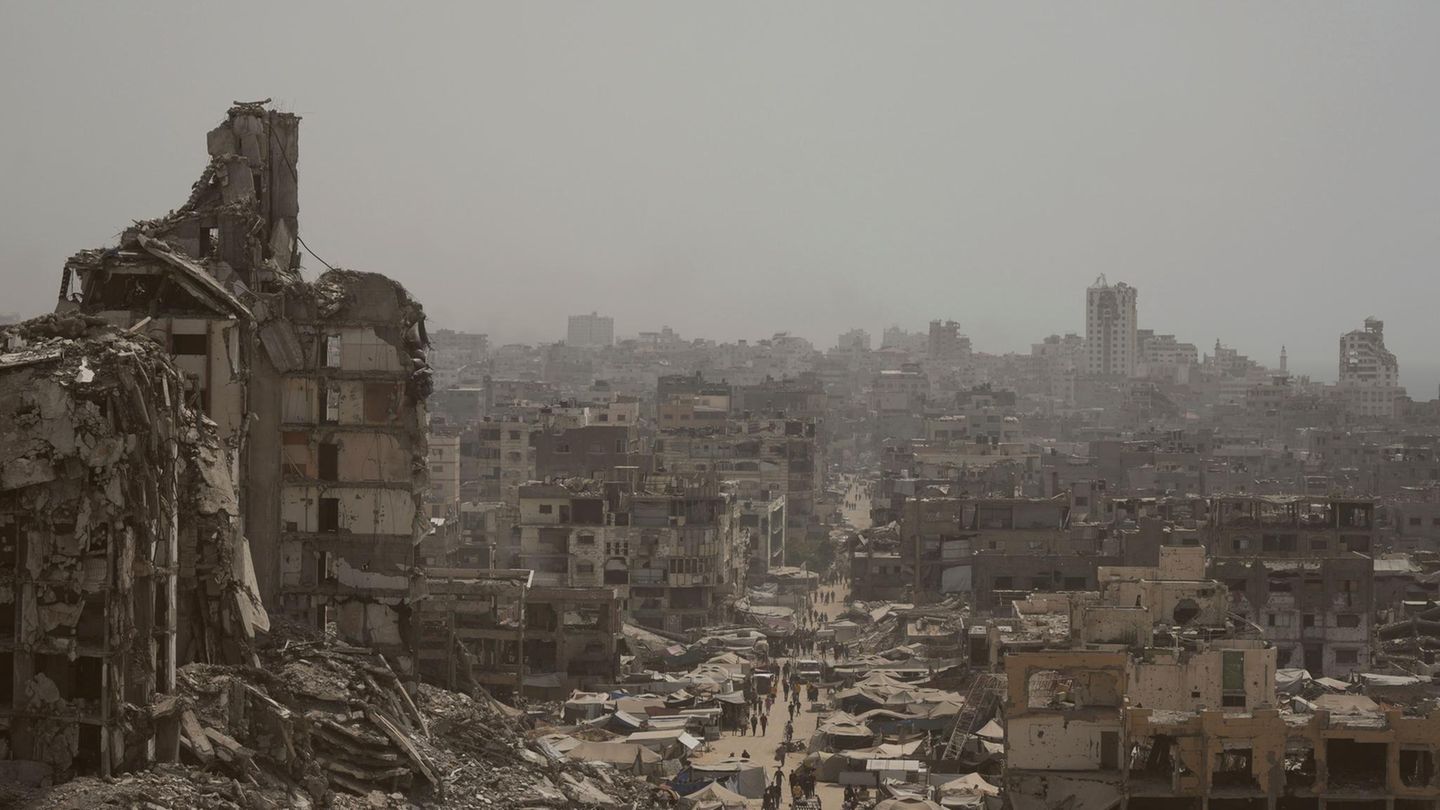The minister participated in the Patagonian forum by videoconference from Buenos Aires and held an exchange of questions and answers with Mark Bulgheroni, Group CEO of Pan American Energy (PAE). “The most important challenge is that the dialogue table, the search for agreements and solutions, is never disarmed” among the protagonists of the field, he said in the one-on-one talk with the businessman.
“Without well-paid and remunerated workers, the sector would have difficulties; without businessmen who invest and carry out the process of economic development, the State and those workers would have difficulties; without the income that the sector represents for the provinces and the Nation, we would have difficulties Without the incentive rules that the provinces or the Nation can carry out, it would be very difficult to develop,” he said.
“This four-legged table, National Stadium, provincial states, companies and workers, is key to putting an umbrella for 2030 and to choose the energy sector as one of the great players, not only local, but also geopolitically global in Argentina for the coming years”Massa emphasized.
image.png
Earlier, Bulgheroni held a face-to-face dialogue with the Secretary of Energy of the Nation, Flavia Royón, who put figures to promote energy exporter. According to the official, The energy balance this year is going to be balanced and next year it is going to give between 8,000 and 12,000 million dollars of positive balance”.
In his speech at the forum, Royón also ratified that the first stage of the Néstor Kirchner Gas Pipeline will be operational as of June 20, announced the tender for the second section of the construction and confirmed that in the coming weeks the LNG law will be sent to Congress to attract investment.
Massa took up these issues and stressed that in addition to the LNG development project, hydrogen will also be sent, to “increase the capacity to develop these energies and ensure investments to take advantage of these resources.”
Regarding the gas pipeline, Massa recalled that the national State financed the first section and ratified that “We are going to invite the private sector to the bidding for the second tranche.”
The contributions of US$540 million from CAF, a bank founded in 1970 that is currently made up of 19 countries in Latin America and the Caribbean, are used for complementary works on a new gas pipeline that will link La Carlota with Tío Pujio, in Córdoba, and that it is part of the national gas deployment project, but not of the GPNK in particular.
The second stage of the gas pipeline will connect the towns of Salliqueló in the province of Buenos Aires with San Jerónimo, in Santa Fe. Financing has not yet been confirmed, but contributions of US$689 million from the Brazilian National Development Bank (Bndes) were evaluated. . Royon mentioned on Thursday the possibility of adding Saudi funds. In fact, last week Massa met in Washington with the CEO of the Saudi Fund for Development (SFD), Sultan bin Abdulrahman Al-Marshadto analyze investments. “Getting financing is complex because the energy transition has changed priorities. In any case, we have assumed commitments,” Royon indicated.
Who participates in IDEA Energy 2023
In this opportunity, IDEA Energy Experience focuses on the possibility that the international context presents to the country, and on the urgency of taking advantage of it within the framework of the energy transition. “With this perspective, we will meet in the city of Neuquén, very close to Vaca Muerta, where this opportunity is so visible, to address the challenges of the different energy sectors (including hydrocarbons, biofuels, renewables, lithium and hydrogen) from a perspective businesswoman enriched with the visions of the national and provincial governments, as well as trade unionism,” they detailed in a statement.
During the event, it was already heard on Wednesday night Mariano ArcioniGovernor of Chubut, and to Omar Gutierrez, governor of Neuquén, also moderated by bulgheroni, of PAE, who chairs the organizing committee of the conclave.
image.png

Arcioni remarked that Chubut “as an energy-producing province, the support of public and private actors is essential to develop large investments” and stressed that “The resources of our province position us as leaders in oil exports and in contributions to the national wind energy matrix.”
“For our management, it is very important to continue working in favor of the development and empowerment of this indispensable sector for the people of Chubut,” the president completed.
Also participating are Bob Dudley, Chairman of the Oil and Gas Climate Initiative (OGCI) and former Chairman and CEO of BP and Robert MurchisonPresident of IDEA and Grupo Murchison.
Nicolas ArceoDirector of the consulting firm Economy and Energy and Nicholas Gadano, Economist responsible for Energy at Fundación Pensar, they will talk about the macroeconomic impact of the energy industry in Argentina.
The trade union perspective on the opportunities of the energy industry will also be the focus of debate: they will address it Jorge AvilaGeneral Secretary of the Chubut Private Oil and Gas Union together with Marcelo RucciGeneral Secretary of the Private Oil and Gas Union of Río Negro, Neuquén and La Pampa and Claudio Vidal, General Secretary of the Oil Union, Private Gas, Renewable Energies of Santa Cruz and National Deputy.
Ricardo MarkousCEO of Tecpetrol will speak about “the oil and gas opportunity in Argentina: Vaca Muerta and conventional” together with Ricardo RodriguezPresident of Shell for Argentina, Chile and Uruguay.
Gabriela AguilarGeneral Manager Argentina and Vice President of LATAM of Excelerate Energy, Hugo EurnekianCEO of CGC and paul iulianoCEO of YPF will discuss “infrastructure as a State policy: the necessary investments in upstream, midstream and downstream”.
bernard andrewsCEO of Genneia will speak with Andres GismondiVice President of LATAM Sales at Vestas and will be moderated by Paul FerreroExecutive Director of MSU Energy on the topic “electrical infrastructure in Argentina and the opportunity of renewable energy”.
The block of public policies for the energy sector will be in charge of Gustavo Lopetegui, former Secretary of Energy of the Nation during the management of Mauricio Macri, and of Dario MartinezRoyon’s predecessor in the same position and recently elected provincial deputy in Neuquén.
Source: Ambito




